After driving east for six hours from Khartoum, our driver Khatir, Tariq and I arrive in New Halfa. We meet my cousin Amir in the market, and he guides us to his home.
Each of the 25 resettlement villages is known by a number, not a name. Each has 250 houses, a school, mosque and some shops within a communal area. Our destination is village No 18, representing the village where my father’s family was relocated. Each house is a yellow-brown color, walls of molded concrete blocks formed into four rooms, a slanted asbestos roof, and a courtyard surrounded by a fence. There were no kitchens in the original homes, many homes have been modified. The traditional Nubian decorations are absent from the gates, but some are painted brightly.
We arrive at around 3 pm, and are greeted with a wonderful Sudanese lunch by cousins, Amir and Mohamed Abdel Bashir. We have never met before, but it is like a long-awaited reunion. We share our condolences, since their mother, my aunt, has recently passed away. We see old pictures, including one of my sister visiting the common grandmother that we share, another of my mother in college around 1960. There is a painting of the train that took them on their exodus. They are extremely hospitable, and we will stay with them.
My cousins work the land that the families were allocated in the resettlement. Mohamed was elected by a people’s committee to manage the water supply, which is unfiltered and used for everything from agriculture to human use. Every day he goes to the well, which is fed by an irrigation canal from dam and puts in 30 water purification tablets to reduce the chance for water-borne diseases. The same happens in all 25 villages. An electric pump elevates the water so that it can be distributed to the houses.
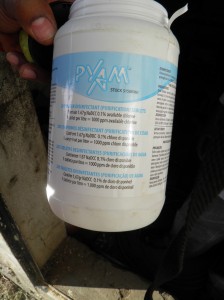
Neighbors in Wadi Halfa were resettled together to the extent possible. We set out to visit to the neighbors, taking time especially to talk to the elders who are old enough to relate the experience of “Al Hijra”.
It was an emotional day. The conversations with the older Nubians evoked a deep sense of loss over a world and community that they loved. Amina Hassan spoke about a place with no diseases, with easier agriculture, of date palms and orange trees, gardens, fresh water and clean air, the closeness of people to one another, and peace.
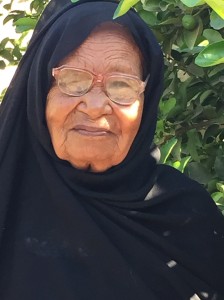
“Even if I go to heaven,” said Abdel Aziz Saleh Shalabi, “I will still long for the Nubia that I lost.”
“When I dream at night, the world I see is the Nubia of his youth 50 years ago,” Hassan Abdel Halim explained, “My children are there with me, although they were born in New Halfa. The new land never appears.” Ustaz Rushdi, a retired educator, was brought to tears by his own reflections of how life was, and how it is.
It is hard to express the deep sorrow that resides in the hearts of those that experienced the exodus. The hearts of the older generation, those who carry forward the culture, have simply been shattered. There is no other way to put it.
They sense that they were betrayed by fellow Sudanese and Egyptians, and that no one cares about their fate today; that they were fooled by many promises that went unfulfilled.
They explained that the Sudan was newly independent and unprepared in the years ahead of the exodus. The President came to visit the Nubians after signing the agreement that sealed their fate, only then realizing the value of what he lost. The President promised them that they would choose their new home. The Nubians formed a committee, visited all of the sites and selected one. But the government chose another. Many chose to relocate to the capital, Khartoum, or like my family even further. We visited the house allocated to my father. Two guava trees grow in its courtyard; one bitter, one sweet.
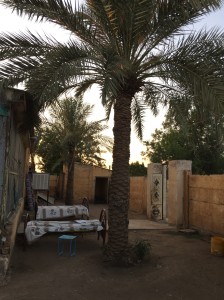
As Tariq explained, agriculture is different. In Nubia, families were able to get high yields from small plots because of the fertile soil and water, and the weather that allowed year-round rotations of crops. In New Halfa, plots of land are very large, and required much more labor. After a few good years, the land now requires frequent fallow and is less productive.
Some of the younger Nubians who were born after 1964 did not know the old country and don’t see the need to look back. There is value in this – those who look forward seem more ready to build a better future, and there is clearly opportunity in this productive area. But among others is a clear sign of a lack of hope; young men standing around without purpose.
Anyone displaced must feel a sense of injustice. The Nubians chose neither migration nor their destination. Words were spoken at the time of the migration to put them at ease. There was the idea that the Nubians were sacrificing their homeland for the greater good of Egypt and an Arab nation emerging from a long history of colonization. The unity of the Nile Valley resonates with many Sudanese. Winston Churchill once said that the Nile is as a palm tree, with its roots in Africa and its fronds and fruit in the delta. But to the Nubians I met, those words must now seem as hollow as the reeds that line the Nile.
It is clear that the culture is dying. The language is rarely spoken, replaced by Arabic. The traditional dress of Nubian women, the “jirjaar,” a long black dress with a train behind, is gone. A train was possible in old Nubia because the ground was sandy and would fall off easily. But in New Halfa, they tried to shorten it to account for the more muddy soil, and then gave up. They still enjoy Nubian music and weddings, but this is rare now.
Only 85 of the original 250 houses in Village 18 still belong to Nubians. As this generation of older Nubians pass from this world to the next, I sense that the idea of Nubia will go with them. Only then will have realized what we have lost.
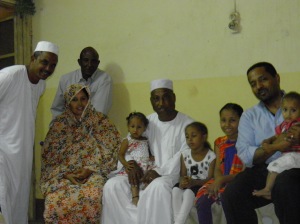
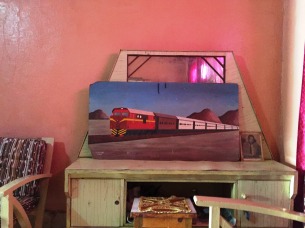
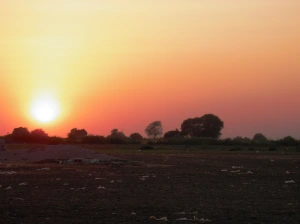
















Reblogged this on SHG: Sudan Information Hub.
LikeLike